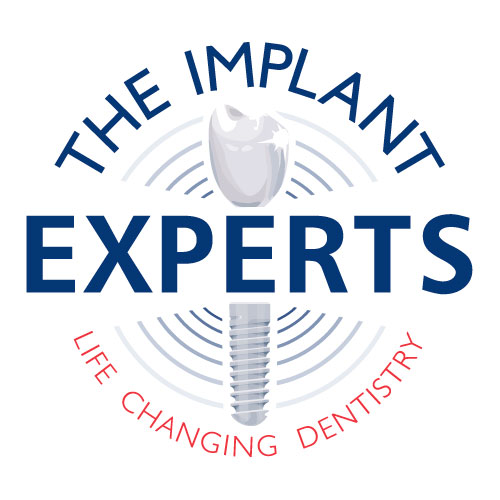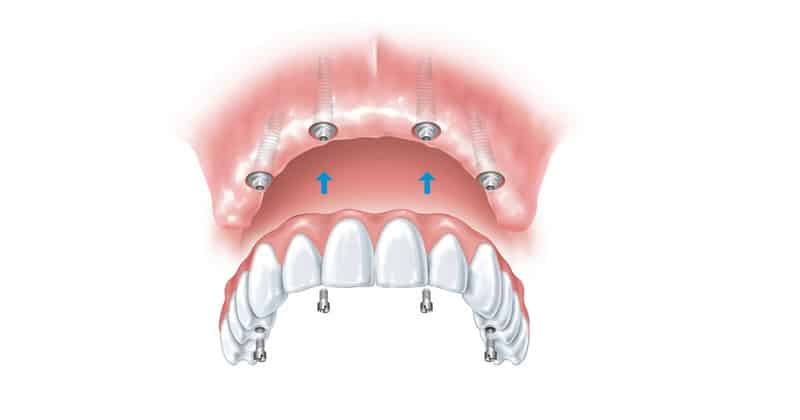If you’re considering replacement teeth, this article provides you with a top-level overview of the whole dental implant procedure. Please bear in mind that for specifics about your own treatment, you should call for a free consultation with our Dental Implant Co-ordinator.
1. Dental implant discussions
Once you have decided to progress with dental implants, you will discuss your own personal case with our dental implant specialist. Once the best option has been agreed on, you will be provided with a full treatment plan which highlights:
- The costs of the dental implant procedure
- What is included and excluded in those costs
- The risks and benefits of dental implants
- Whether dental sedation is offered or not and if it is what is the fee
- How many appointments will be required and at what interval
- What standards of care your dental practice will offer you
- What level of commitment is expected from you as the patient
- The complaints procedure in place
You then have all the information you need to make an informed choice about whether you wish to go ahead with the treatment or not.
2. Implant planning stage
During this stage, you may be required to visit the dental practice two or three times. You may be required to go for CT scans and x-rays. These show the exact dimensions and density of the bone where the implant is to be placed, and enable the dental implant surgeon to be clear as to the dimensions of the implant that he can place.
The way your top and bottom jaws/teeth meet with each other will also be assessed to allow the dental technician to replicate the way your jaw moves in the dental laboratory when they are making your final crown.
Your dental implant surgeon (implantologist) and dental technician will work closely together during this phase to decide where the final crown/bridge/denture is to go, work out how they should look and then work backwards from there to plan the exact place of the dental implant.
3. Dental implant placement
With modern dentistry techniques, the implant placement procedure can be made comfortable and relatively pain-free. If you are particularly concerned then please ask your dentist for sedation, which will enable you to completely relax and drift off into your own twilight world whilst dental implants are placed.
Your dentist will need to drill a hole into the bone which exactly matches the diameter required for the dental implant. The implant will then be gently placed into this hole and the gum will be stitched over the top. More often than not your dentist will then provide you with some form of temporary tooth replacement. In some instances, this is not possible but this should be already explained to you in your treatment plan during the diagnostics stage earlier on, so this should not come as a surprise to you.
Once the implant is placed and you can leave the dental implant centre and wait for the dental implant to heal.
4. Dental implant healing
The healing phase is very important. During this phase, the gum will heal over the top of the dental implant and the implant itself will start to integrate into the bone. This process takes anywhere from 3 to 6 months.
After this integration process has occurred and the implant is fixed solidly in your jaw we can then move on to the reconstruction phase.
5. Reconstruction
The missing teeth are then replaced with the final crown. The new ‘unit’ comprises:
- The dental implant itself
- The abutment which screws into the dental implant
- The crown which attaches to the abutment
The dental implant and the abutment are standard manufactured items. Your crown, on the other hand, is a custom-made dental device tailor-made to meet your exact requirements by a highly skilled dental technician during the initial phases.
The crown will be made to look exactly like your surrounding teeth, with the surface texture, colour and anatomy all characterised to blend in perfectly with the surrounding dentition. If for any reason you are not happy with the crown, make your oral surgeon aware – it can be sent back to the dental technician if necessary to be remade.
6. Follow up
After your crown has been fitted, you will be asked to return to the dental implant centre for a follow-up a couple of weeks later, to ensure that everything is working fine and that the implant is exactly as you wanted it to be.
7. Ongoing care
As with natural teeth, your dental implant requires ongoing care. Keep all of your teeth clean and floss regularly to avoid bacteria build-up and associated complications.
The Implant Experts is a specialist dental implant centre located in Maidstone Kent. We offer the highest quality dental implant advice and implant placement for our own patients and for patients from other dental practices in the local area.
If you would like to discuss same-day dental implants with us, call to arrange your free initial chat with our dental implant co-ordinator where you can discuss your situation, and find out what the various treatment options entail and their prices.

